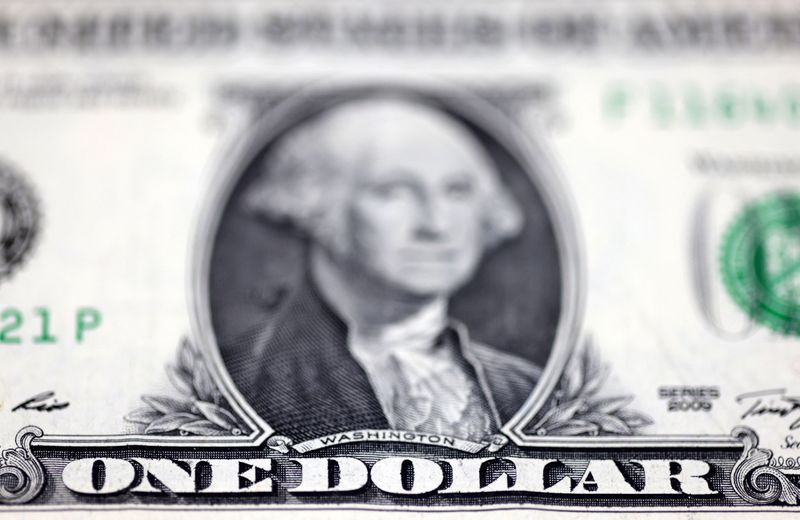By Peter Nurse
Investing.com - The U.S. dollar pushed higher in early European trade Friday ahead of Federal Reserve Chair Jerome Powell's eagerly-awaited speech at the central bank’s Jackson Hole gathering, which could provide more clues on future policy tightening.
At 03:10 ET (07:10 GMT), the Dollar Index, which tracks the greenback against a basket of six other currencies, traded 0.2% higher to 108.623, just below its highest level in two decades and on track for a 0.4% weekly gain.
Traders will focus on Powell's speech, at 10:00 ET (14:00 GMT), for any insight into how aggressively the Fed still plans to raise interest rates in order to curb inflation running at 40-year highs.
A series of Fed policymakers have in recent weeks been keen to emphasize the importance of the U.S. central bank getting inflation under control.
St. Louis Federal Reserve President James Bullard was the latest on Thursday, saying he expects high inflation to be more persistent than many have been expecting and interest rates now are not yet high enough to begin curtailing price pressures.
This tends to suggest that Powell will retain a hawkish stance, likely pointing to another hike of 75 basis points in September, which can only benefit the dollar further.
“Markets will be scanning Powell’s speech today from a number of different perspectives: inflation, growth outlook, front-loading, and any hint of easing in 2023,” said analysts at ING, in a note.
“All these factors can play a different role in driving the reaction in the FX market, although we see a quite elevated risk that Powell may end up broadly matching the generally hawkish market expectations and avert any significant market shock.”
Elsewhere, EUR/USD fell 0.2% to 0.9958, dropping back below parity as Europe’s energy crisis sapped confidence from German households.
The forward-looking GfK consumer confidence index for Europe's largest economy fell to a record low of -36.5 in September from a downwardly revised -30.9 in August. That's well below its previous troughs either during the Great Recession in 2009 or at the start of the pandemic in 2020.
GBP/USD fell 0.3% to 1.1793, not far from its more than two-year low of 1.1718 hit early in the week, with soaring energy prices expected to push the country’s economy into a prolonged recession.
U.K. households face a rise of around 80% in their electricity and gas bills from October after the national energy market regulator Ofgem raised its price cap sharply higher again.
Ofgem said its price cap for the typical annual dual-fuel tariff will rise to 3,549 pounds ($4180) from October 1st, from 1,971 pounds currently.
USD/JPY rose 0.4% to 137.01 as U.S.Treasury yields rose ahead of Powell’s speech, while USD/CNY rose 0.2% to 6.8625, with the pair near a two-year high as the Chinese economy faces a severe slowdown in growth stemming from COVID lockdowns, a struggling real estate market, and a potential power shortage.
